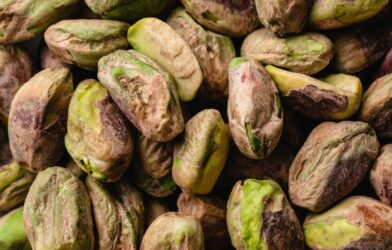Aging is a reality for everyone. For many, it’s a slow and steady decline of the body and mind. We often think of this process as inevitable, something determined by our genes and the simple passage of time.
But what if the key to living a longer, healthier life was hiding in a world we can’t even see? A world living right inside us, in our very own gut. A recent review of research published in the journal Exploratory Research and Hypothesis in Medicine suggests that the tiny organisms living in our digestive systems, collectively known as the gut microbiome, are not just passive residents. Instead, they are active participants in our aging process, influencing everything from our bone density to our brain health.
The paper, titled “Understanding Aging through the Lense of Gut Microbiome,” combines research from numerous studies to paint a compelling picture: the health of our gut bacteria could be one of the most powerful and overlooked factors in how we age. As we get older, our microbiome changes, and these shifts are directly linked to some of the most common health problems in old age. The good news is we may be able to influence these changes.
Your Gut’s Story, From Birth to Old Age
To understand how our gut microbes impact our later years, we can trace their journey from the very beginning. The paper explains that the way we enter the world has a profound effect on our first microbial community. Babies born vaginally are exposed to the mother’s vaginal microorganisms, which are rich in beneficial species. Infants delivered by C-section, on the other hand, tend to have a microbiome that resembles the bacteria found on the skin.
After birth, the microbiome continues to be shaped by what we eat. Breastfed babies’ guts are dominated by a beneficial group of bacteria called Bifidobacterium, while formula-fed infants have more Bacteroides. These early stages are crucial because the gut microbiome at this point is key to the proper development of the infant’s brain and immune system.
As we transition from infancy to adulthood, our gut microbiome goes through a dramatic transformation. When solid foods are introduced, the microbial community becomes more diverse and complex, eventually reaching a stable state that remains fairly consistent throughout our healthy adult years.
The Gut-Brain Connection: More Than Just Digestion
The stability of a healthy adult’s microbiome eventually gives way to a new set of changes as we get older. The paper notes that the elderly microbiome is characterized by a decrease in overall microbial diversity. The balance shifts, with an increase in potentially harmful microbes and a decline in the beneficial species that produce important short-chain fatty acids (SCFAs)—compounds that play a key role in our health.
This shift isn’t just a side effect of getting older; it’s a key player in age-related diseases. Researchers found several ways our gut microbes influence our health as we age:
- Chronic Inflammation: Aging often leads to a condition where the intestinal barrier, the lining of your gut, becomes more permeable. This can allow foreign substances to leak into the bloodstream, triggering a state of chronic, low-grade inflammation throughout the body. This inflammation is a systemic condition that can worsen age-related diseases like Alzheimer’s, Parkinson’s, obesity, and heart disease.
- Muscle and Bone Health: It’s common knowledge that muscle mass and strength decline with age, a condition called sarcopenia. The review reveals that our gut microbiome plays a role in this as well. Certain SCFA-producing bacteria have been shown to correlate with muscle mass. When the gut’s microbial balance is thrown off, it can negatively impact muscle protein synthesis and lead to inflammation, contributing to muscle loss. Similarly, the paper notes a link between the microbiome and changes in bone density, pointing to promising studies where a probiotic was shown to reduce bone loss in elderly women.
- The Gut-Brain Axis: Our gut is sometimes called our “second brain” because of its complex network of nerves and its influence on our mood and cognition. A compelling finding is that changes in the gut microbiome can contribute to neurological disorders. It links chronic inflammation driven by an unbalanced gut to diseases like Alzheimer’s and Parkinson’s. The composition of our gut bacteria, it seems, has a direct line to our central nervous system.
The Secret to Longevity?
Perhaps the most exciting finding in the paper is the connection between the gut microbiome and extreme longevity. When researchers studied the guts of centenarians—people who live to be over 100 years old—they discovered that these individuals had a higher abundance of specific beneficial bacteria, such as Christensenella and Akkermansia. The presence of these microbes points to a healthy, diverse, and robust microbiome being one of the biological secrets to a very long life.
This review drives home a crucial point: the saying “you are what you eat” might need an update. It’s more like, “you are what you feed your microbes.” Our diet, lifestyle, and even our level of physical activity all directly impact the health of our gut microbiome. It’s a powerful call to action, forcing us to look beyond the surface of aging and to consider the intricate world within us. Instead of accepting the decline of old age as inevitable, we can empower ourselves by taking care of the trillion-plus allies in our gut. Their health is our health, and their longevity may very well be our own.
Paper Summary
Methodology
This is a review article that compiled and analyzed existing research on the relationship between the gut microbiome and the aging process. The authors synthesized findings on how the microbiome is influenced by factors like genetics, gender, diet, and lifestyle and how it, in turn, influences age-related conditions.
Results
The gut microbiome undergoes significant changes throughout a person’s life, with diversity declining in old age. This microbial imbalance is linked to various age-related conditions, including chronic inflammation, bone density loss, age-related muscle loss (sarcopenia), and neurological disorders. The paper also found that centenarians have a unique microbiome composition, suggesting a link between specific gut bacteria and longevity.
Limitations
As a review article, its findings are based on a synthesis of other studies. The paper notes that the biological definition of aging differs between humans and mice and that the diversity of the gut microbiome can vary widely among individuals based on genetics, geographical location, and lifestyle.
Funding and Disclosures
The provided document does not contain any information about funding or specific disclosures for this paper.
Publication Information
- Authors: Rashmi Ira, Jitesh Adwani, Arjun Orkkatteri Krishnan, Gurunathan Subramanian, Sandhya Yadav, Saumya Shukla, Snehlata Rao, and Tulika Prakash
- Journal: Exploratory Research and Hypothesis in Medicine
- Volume and Issue: Vol. 9, Issue 4
- Pages: 294-307
- Publication Date: Published online on August 02, 2024
- DOI: 10.14218/ERHM.2024.00008












